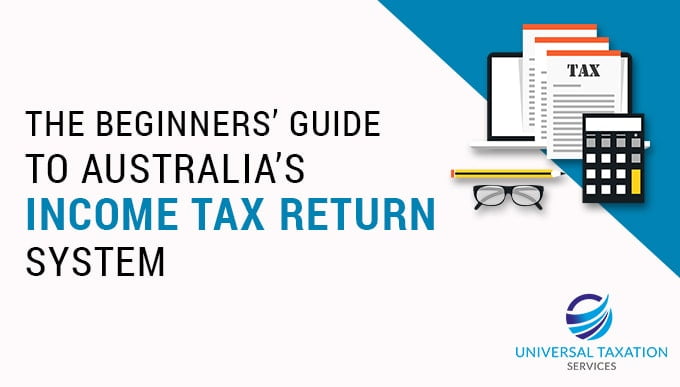Exploring the Benefits of Filing a Tax Return: Optimize Your Tax Obligation Reimbursement This Year
Filing a Tax return is often viewed as a tough task, yet it plays an essential duty in boosting your economic standing. By carefully reporting revenue and leveraging readily available deductions and credit ratings, individuals can tap into the potential for considerable tax obligation refunds.
Significance of Declaring an Income Tax Return
Filing an income tax return is a significant duty for individuals and services alike, as it serves both compliance and economic management objectives. Following tax obligation legislations is necessary, as failing to submit can cause considerable charges, rate of interest charges, and prospective lawful consequences. By sending a Tax return, companies and individuals demonstrate their dedication to meeting their public responsibilities and contribute to the functioning of civil services.
Furthermore, submitting an income tax return provides an opportunity for taxpayers to assess their economic situation. It permits them to track revenue, expenditures, and overall monetary health, which can inform future budgeting and financial investment choices. For lots of, tax obligation returns are a portal to potential reimbursements, as overpayment of taxes throughout the year can be redeemed, providing a much-needed monetary increase.
In addition, the income tax return process can help with access to numerous economic services and products. Lenders often need income tax return when determining credit reliability for lendings or home loans, making it necessary for people and companies seeking monetary help. In verdict, filing an income tax return is not simply a governing responsibility; it is a significant action in maintaining monetary stability and revealing potential benefits.
Recognizing Tax Obligation Reductions
Tax reductions are frequently neglected yet play an important role in reducing taxable earnings and optimizing potential reimbursements. Recognizing the numerous kinds of tax reductions offered can significantly influence your overall tax obligation liability. Reductions can be categorized into two primary kinds: common deductions and itemized reductions.
The standard deduction is a fixed buck amount that taxpayers can subtract from their income, differing based upon declaring status. For lots of individuals, particularly those without considerable itemizable costs, taking the conventional reduction is beneficial. On the various other hand, itemized deductions permit taxpayers to checklist eligible expenditures, such as home mortgage interest, medical expenditures, and charitable payments, possibly producing a better deduction than the typical option.
It's vital to maintain precise documents of all deductible expenditures throughout the year to guarantee you capture every qualified reduction. Additionally, certain deductions might go through restrictions or phase-outs based on income levels. Acquainting yourself with these nuances can assist you tactically intend your financial resources and optimize your tax return. By understanding and leveraging tax obligation reductions efficiently, taxpayers can decrease their taxed revenue and boost their general tax obligation reimbursement.
Checking Out Tax Credits
Optimizing your tax obligation financial savings involves comprehending the various kinds of tax credits offered to you. Tax credit reports directly reduce your tax liability dollar for dollar, making them more helpful than deductions, which just reduced your taxable earnings.
There are two key classifications of tax credit reports: nonrefundable and refundable. If the credit report surpasses your tax obligation owed, nonrefundable credit ratings can reduce your tax obligation responsibility to no but will not result in a reimbursement. Refundable credit ratings, on the various other hand, can create a refund even if you have no tax obligation liability, making them specifically useful for lower-income taxpayers.
Typical tax obligation credit scores include the Earned Income Tax Obligation Debt (EITC), which sustains low to moderate-income working people and households, and the Youngster Tax Obligation Credit history, which provides economic alleviation for taxpayers with reliant kids. Education-related credits, such as the American Chance Credit Scores and the Life Time Learning Credit scores, assistance counter the costs of college.
Common Blunders to Stay Clear Of
Maneuvering the complexities of income tax return can result in several common risks that taxpayers need to be aware of. One significant blunder is failing to report all income sources. Also percentages from sideline or freelance work should be included, as the internal revenue service obtains copies of all income statements.
An additional frequent error involves neglecting reductions or credit scores for which one is qualified. Taxpayers need to extensively research potential reductions, such as for trainee loans or clinical costs, to avoid leaving cash on the table.
Furthermore, errors in personal info, such as Social Safety and security numbers or filing standing, can postpone processing and reimbursements. It is crucial to verify all information before submission to assure precision.
Filing late or ignoring to submit completely can likewise lead to penalties and missed opportunities for refunds. Taxpayers must be conscious of deadlines and plan accordingly.
Finally, lots of individuals neglect to maintain in-depth documents of costs and sustaining files. Organized documentation is basic for validating insurance claims and promoting any kind of future audits. By preventing these common mistakes, taxpayers can simplify their filing procedure and improve their possible reimbursements.
Tips for Maximizing Your Reimbursement

Following, consider adding to pension, such as find an IRA. Payments made before the tax deadline can be subtracted, potentially boosting your refund. Additionally, if you are site self-employed, be sure to represent business-related expenditures that can decrease your gross income.
An additional important strategy is to file your return digitally. E-filing not just quickens the handling time yet likewise lessens mistakes that can occur with paper submissions. Additionally, confirm that you choose the proper declaring standing; this can substantially impact your tax price and qualification for particular debts.
Last but not least, maintain thorough documents throughout the year. Organizing invoices and economic records can streamline the declaring process and help you determine potential reductions that you could otherwise miss. By taking these actions, you place on your own to get the maximum refund possible.
Verdict

By carefully reporting earnings and leveraging readily available deductions and debts, people can touch into the potential for substantial tax reimbursements. For numerous, tax obligation returns are an entrance to possible refunds, as overpayment of taxes like this throughout the year can be recovered, supplying a much-needed monetary increase.
Understanding the different kinds of tax obligation reductions available can considerably impact your overall tax obligation responsibility. Online tax return Australia. By comprehending and leveraging tax obligation deductions efficiently, taxpayers can minimize their taxed earnings and boost their general tax reimbursement

Comments on “Step-by-Step Guide for Completing Your Tax Refund in Australia”